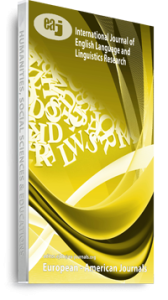In LeRoi Jones/Amiri Baraka’s playtexts, the authority of the English language seems to become the object of linguistic mutilation and salient profanity. The employment of an obscene language and the disfigurement of language transpire to be acts of a deliberate withdrawal from linguistic norms. The dramatist along with the plays’ characters seem to drop identification with domination from the agenda of cultural and political options, and gesture toward altering and inverting linguistic conventions and connotations. The playwright, consequently, appears to invert and subvert the English language, a language that is perceived as odd and dominative. Inversion is indexical of the linguistic proclivity to chase a language which levies its significations and meanings. The dramatist’s transformations carved on the tissue of verbal and written forms signal an urgency to unchain the black vernacular and break off the shell of the English language. Baraka’s style seems then to ground inversion with variation, revision, and repetition on the body of language itself. In this light, mutilation tends to assume a disruptive syntax, uncommon orthography, and disparate typography. Inversion implicates new terms and forms for the production of novel meanings. This is the new modality upon which the playwright’s writing style is predicated. The goal of this article is to spell out Baraka’s resort to profanity and mutilation along with outlining the reversal of signification and its attendant senses. The second objective of this article is to sketch and delineate the pattern of inversion marshaled by the dramatist. The first part sheds light on the playwright’s recourse to profanity and obscenity of parlance. The second part traces the mutilation of language and takes stock of the inversive pattern.
Keywords: Language, Transformation, inversion, mutilation, profanity, signification

